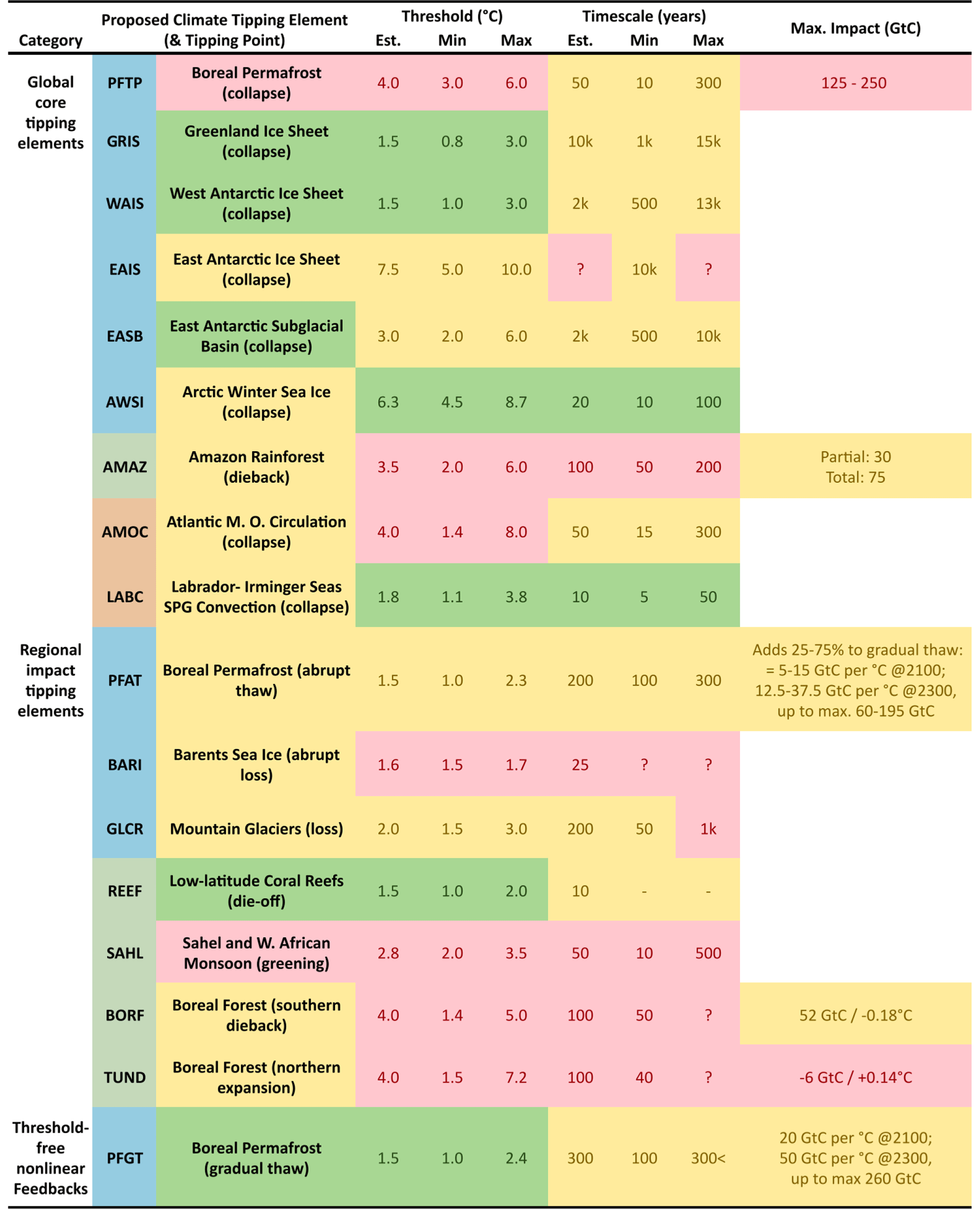Scientists on Wednesday
released yet another study warning that humankind is at risk of triggering various climate "tipping points" absent urgent action to dramatically reduce planet-heating emissions from fossil fuels.
The new peer-reviewed paper, published Wednesday in the journal
Earth System Dynamics, comes from a trio of experts at the United Kingdom's University of Exeter and the University of Hamburg in Germany.
Climate scholars use the term "tipping point" to describe a critical threshold which, when crossed, "leads to significant and long-term changes of the system," the paper notes. Debate over it "has intensified over the past two decades," prompting several studies of specific risks.
"Climate tipping points could have devastating consequences for humanity," said co-author Tim Lenton in a statement. "It is clear that we are currently on a dangerous trajectory—with tipping points likely to be triggered unless we change course rapidly."
"We need urgent global action—including the triggering of 'positive tipping points' in our societies and economies—to reach a safe and sustainable future," added the Exeter professor and Global Systems Institute director.
Lenton's team calculated the probabilities of triggering 16 tipping points. They looked at the risks of serious damage to key glaciers, ice sheets, sea ice, and permafrost; the dieback of forests such as the Amazon; the die-off of low-latitute
coral reefs; and the collapse of the Atlantic Meridional Overturning Circulation (AMOC), which is part of a crucial "global conveyor belt" of ocean currents.

To assess the risk of current policies triggering climate tipping points, the researchers focused on a scenario in which median warming of 2.8°C takes place by the end of the century.
On that pathway, the study says, "our most conservative estimate of triggering probabilities averaged over all tipping points is 62%... and nine tipping points have a more than 50% probability of getting triggered."
Under scenarios with lower temperature rise, "the risk of triggering climate tipping points is reduced significantly," the study continues. "However, it also remains less constrained since the behaviour of climate tipping points in the case of a temperature overshoot is still highly uncertain."
The paper concludes that "rapid action is needed to reduce greenhouse gas emissions, since climate tipping points are already close, and it will be decided within the coming decades if they will be crossed or not."
Lead author Jakob Deutloff shared that takeaway a bit more optimistically, saying that "the good news from our study is that the power to prevent climate tipping points is still in our hands."
"By moving towards a more sustainable future with lower emissions, the risk of triggering these tipping points is significantly reduced," he added. "And it appears that breaching tipping points within the Amazon and the permafrost region should not necessarily trigger others."
The paper was published during Covering Climate Now's joint week of
media coverage drawing attention to the 89% of people worldwide who want their governments to do more to address the global crisis; ahead of a Global Systems Institute conference on tipping points this summer; and just over six months away from the next United Nations climate summit, COP30, in Brazil.
While some governments are trying to prevent the worst-case scenario by taking action to cut emissions, U.S. President Donald Trump has made clear since returning to office in January that he aims to deliver on his pro-fossil fuel campaign pledge to "drill, baby, drill."
On the heels of the
hottest year in human history, Trump is working to gut key agencies, ditched the Paris climate agreement, and has taken executive action to boost planet-wrecking coal, gas, and oil, including declaring a national energy emergency.

